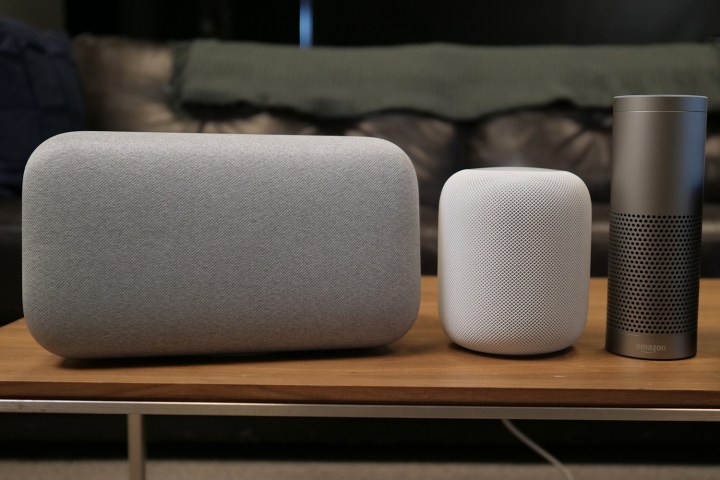
Summarizing the smart speaker market during the last quarter of 2018, Computer Intelligence Research Partners (CIRP) found that, compared to Amazon Echo and Google Home, Apple’s HomePod is barely in the game.
Apple’s HomePod has superior audio and it protects conversations, but lined up against Amazon Echo with 70 percent of the market and Google Home with 24 percent, the HomePod’s six-percent market share is far behind, at least for now.
Based on CIRP’s estimate of an installed base of 66 million smart speakers in the U.S., that translates to 46.2 million Amazon Echo devices, 15.8 million Google Home smart speakers, and just under 4 million Apple HomePods.
Even without considering other factors, especially the much greater range of smart home devices that work with Amazon Echo and Google Home smart speakers, selling price is a major factor differentiating the Homepod. Second generation Amazon Echo Dots sell for as low as $20, and the newer, third generation Dot is often available for $30. The Google Home Mini is widely available for $30. The Apple HomePod, however, costs $350. That price gap is a show-stopper for many people, which was apparent as 2018 came to a close.
“Holiday shoppers helped the smart speaker market take off again,” said Josh Lowitz, CIRP partner and co-founder. “Relative market shares have remained fairly stable, with Amazon Echo, Google Home, and Apple HomePod accounting for consistent shares over the past few quarters. Amazon and Google both have broad model lineups, ranging from basic to high-end, with even more variants from Amazon. Apple, of course, has only its premium-priced HomePod, and likely won’t gain significant share until it offers an entry-level product closer to Echo Dot and Home mini.”
Smart speakers are often the foundation of residential smart homes. A smart speaker’s current and future value to consumers can be measured by the functions they can perform to inform, instruct, alert, and entertain family members as well as control other devices such as security systems and home monitoring. When a smart speaker serves as a smart home voice command station, the greater the installed base among households, the greater incentive for third parties to develop devices and apps that work with the platform.
The low-priced Amazon Echo Dots and Google Home Mini allow consumers to have multiple units in their homes. CIRP found that, compared to 18 percent at the end of 2017, 35 percent of smart speaker owners had multiple devices in their homes at the end of 2018.
Referring to Amazon and Google in the smart speaker report, CIRP partner and co-founder Mike Levin said, “Their strategies appear to include persuading owners to use smart speakers in multiple rooms, which helps create more active usage of the voice platform. And, Google has mostly caught up to Amazon in this strategy. A year ago, almost twice the percentage of Amazon Echo users had multiple units as Google Home users. Now, about one-third of both Amazon Echo and Google Home users have multiple units.”
As owners become acclimated to using voice not only to give commands and make requests but to engage and interact with Amazon Alexa and Google Assistant, displacing either voice assistant will become even more of a challenge for Apple. Apple’s decision to bring the Apple Music subscription service to the Amazon Echo platform last fall may be a sign that the Cupertino, California company sees where there’s money to be made, even on a competing platform.



